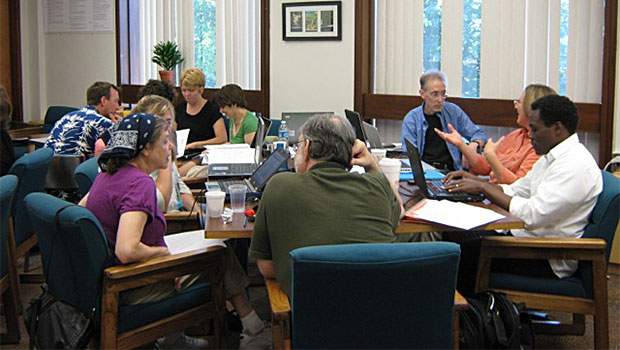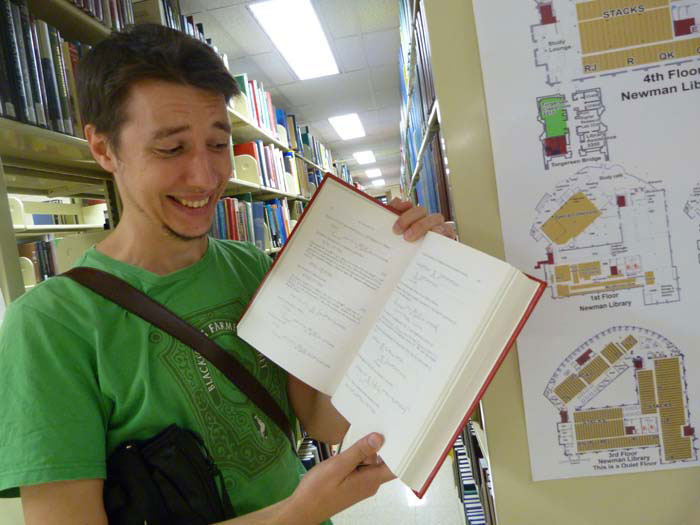Erica Jacobs teaches English at Oakton High School and writing at George Mason University. She had a B.A., M.A., and Ph.D. from Columbia University and has published numerous articles in local newspapers, newsletters, and magazines. This article is a reprint from her 1997 publication, “The Weekend Retreat.” Be on the look-out for her follow-up piece this February on her most recent participation in the WAC-sponsored Winter Faculty Writing Retreat that took place on January 7-8, 2015.
As a non-tenure track teacher at George Mason University, I was pleased to discover I was eligible to participate in a “Writing Retreat” sponsored by the English department and the Northern Virginia Writing Project in the fall of 1978. Don Gallehr had completed the first two summers of the Writing Institute with local high school teachers, and their success on the secondary level seemed to promise equal success on the University level.




